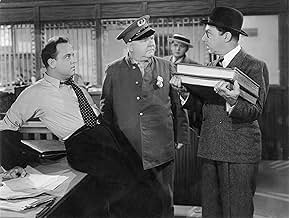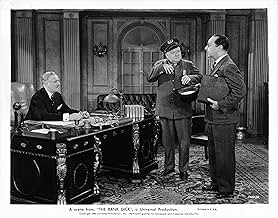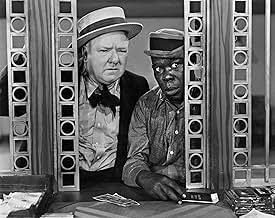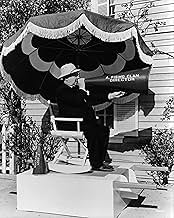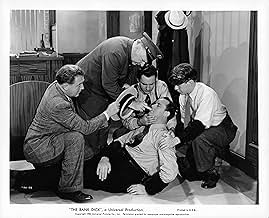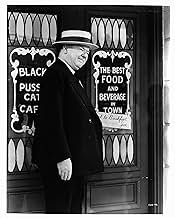Egbert Sousè essaye d'échapper à sa femme, ses filles et sa belle-mère en passant son temps au "chat noir". Il est engagé pour remplacer un metteur en scène sur le tournage d'un film..Egbert Sousè essaye d'échapper à sa femme, ses filles et sa belle-mère en passant son temps au "chat noir". Il est engagé pour remplacer un metteur en scène sur le tournage d'un film..Egbert Sousè essaye d'échapper à sa femme, ses filles et sa belle-mère en passant son temps au "chat noir". Il est engagé pour remplacer un metteur en scène sur le tournage d'un film..
- Réalisation
- Scénario
- Casting principal
- Récompenses
- 1 victoire au total
- Mackley Q. Greene
- (as Richard Purcell)
Avis à la une
After a few amusing introductory scenes that introduce Egbert Sousé, the kind of character Fields loved to play, things really start rolling once Egbert somehow manages to land a job as a bank detective. The wackier the plot gets, the more it shows just how effective Fields's dry style can be. His stoic character and the confusion going on around him often make a hilarious combination. It's very entertaining, goes by quickly, and is filled with comic detail that makes it just as funny when you watch it over again.
Throughout parts of the movie, I wasn't sure whether it was going to be as funny as I usually like (and there was a scene portraying a black man in a manner that wouldn't be allowed nowadays), but it was quite entertaining overall and the whole chase was certainly beyond a hoot. I suspect that they had a lot of fun filming it. Moreover, one might interpret Fields's as a look at America's aspirations of getting out of the Depression (that's pure conjecture, so don't quote me).
So, having seen this movie, I understand what W.C. Fields's brand of humor constituted. One can see why Warner Bros. animation department liked to caricature him as a manipulative pig in some cartoons. Worth seeing.
His politically incorrect jokes seem very present-day, and so makes you understand that the people back in the 1940's weren't so far removed from us as we sometimes think.
Fields is nasty to children, his wife and the bank examiner, whistles at pretty girls and in general just behaves terribly. You wouldn't think they would film stuff like that back in 1940, but Fields did. The movie is populated by crooks and phonies, as for instance the bank president, who says "let me give you a hardy handshake" and then just rests his hand lightly in Fields' for a second. It's a very observant and stinging visual commentary which tells more than many phrases: that's what films are good at, and it is used here to great effect.
The final car chase is really scary, with extra's ducking under cars with only inches to spare!
Le saviez-vous
- Anecdotes"Mahatma Kane Jeeves" (the pseudonym used by W.C. Fields as screenwriter) is a play on words from stage plays of the era. "My hat, my cane, Jeeves!" And in fact, at the end of the film his butler does hand him his hat and his cane.
- GaffesIn the opening bit of dialogue, one of the old ladies points out that there is an "accent grave" over the final e in a character's name, meaning it would be pronounced "Sous-AY", not "Souse". In fact, it's an accent aigu (or acute accent), in both pronunciation and painted on the mailbox she's looking at.
- Citations
Egbert Sousé: [at the bar of the Black Pussy Cat cafe] Was I in here last night and did I spend a twenty dollar bill?
Joe Guelpe: Yeah.
Egbert Sousé: Oh boy, what a load that is off my mind! I thought I'd lost it.
- ConnexionsFeatured in Frances Farmer Presents: Bank Dick (1958)
- Bandes originalesHome Sweet Home
(1823) (uncredited)
Music by H.R. Bishop
Background music near the beginning of the movie and at the end
Meilleurs choix
Détails
- Durée
- 1h 12min(72 min)
- Couleur
- Rapport de forme
- 1.37 : 1

